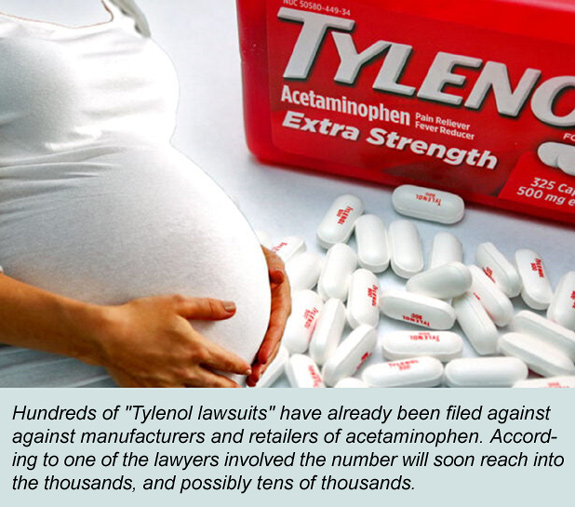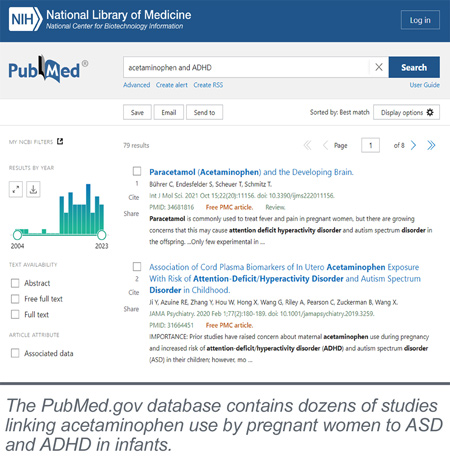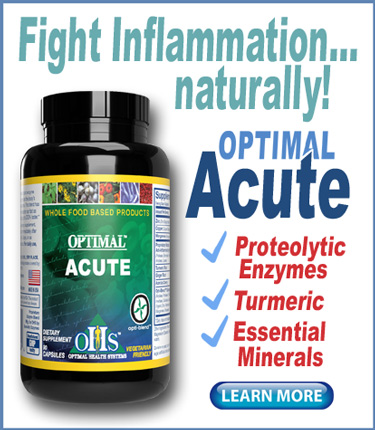In the Covid era, when censorship has become commonplace, most people know they can’t discuss vaccine safety on YouTube or Facebook. Not only will doing so get you banned on social media, but will also put you at risk of wrath from multiple governmental agencies.
But most people don’t know that for decades similar tactics have been used to discredit people who tried to warn the public about the risks of acetaminophen.
Now, as hundreds of “Tylenol lawsuits” are making their way through the courts, we can finally say it: The people who were labeled “conspiracy theorists” weren’t conspiracy theorists at all—they were well-informed consumers whose early warnings should have received more attention.
It should also be obvious by now that traditional news organizations can’t be relied on to report the risks of pharmaceutical products. This is not surprising since mainstream media receives billions of advertising dollars from the pharmaceutical companies that make those very products.
Acetaminophen (or Paracetamol or para-hydroxyacetanilide) is a medication used to treat fever and mild to moderate pain. Common brand names include Tylenol and Panadol. Acetaminophen can be purchased over-the-counter, but is also included in more potent medicines that require a doctor’s prescription.
Hundreds of acetaminophen-related lawsuits have already been filed against retailers and manufacturers, and are slowly working there way through the court system. This is probably just the tip of the iceberg. According to an investigation by The Defender, the newsletter of the Childrens Health Defense.org, the number of lawsuits could soon number in the thousands.
The vast majority of the lawsuits are related to the dangers acetaminophen poses to pregnant women. The suits allege that acetaminophen-containing products were sold to pregnant women for decades after research indicated the medications could harm the developing fetus.
The number of suits is so vast that the U.S. Judicial Panel on Multidistrict Litigation late last year appointed Senior U.S. District Judge Denise Cote to oversee the growing number of lawsuits brought by families of victims. This move means all of the claims will be determined through the U.S. District Court for the Southern District of New York. The lawsuits are so numerous a special master will be responsible for sorting the numerous cases.
In general the lawsuits allege that acetaminophen use during pregnancy can cause children to be born with autism spectrum disorder (ASD) and attention-deficit/hyperactivity disorder (ADHD). An attorney involved in several of the lawsuits, W. Mark Lanier, founder and CEO of the Houston-based Lanier Law Firm, said the acetaminophen lawsuits represent some of the most important health litigation pending in the United States right now.
“Autism and mental health development or mental development issues touch a huge number of Americans. We believe the science indicates that taking Tylenol can cause many of these problems, period. We think the science backs this up, we think the biology backs it up, and we are eager to prove that in a court,” Lanier told The Defender.
It is important to note that the lawsuits are not suggesting that acetaminophen products should be declared illegal and pulled from the market. The goal is one of helping consumers with risk management and appropriate use.
“The goal here is not to take Tylenol off the market,” said Lanier. “The goal here is to put a warning on it so that doctors and expectant mothers are able to make an intelligent decision of what risks they will expose their child to during pregnancy.”
It should be noted that acetaminophen products have come with warning labels for a number of years. These warnings, however, have focused on stomach and skin irritation—and, on the extreme end, liver damage.
Most pregnant women have no idea that there is also a risk to their fetus because this risk has received little attention until recently.
Besides the risk to unborn fetuses, other “unlabeled” acetaminophen risks include gastrointestinal tract bleeding, cardiovascular damage, kidney disease and cancer.
A 2015 study published in the European Journal of Pain noted, “Acetaminophen/paracetamol is the most widely used drug of the world. At the same time, it is probably one of the most dangerous compounds in medical use.”
According to data research, acetaminophen overdose is the leading cause for calls to Poison Control Centers. It also accounts for more than 56,000 emergency room visits, 2,600 hospitalizations, and an estimated 458 deaths due to acute liver failure each year.
In fairness, it should also be noted that information on acetaminophen and pregnant women is available for those who know where to look. Even a cursory search at National Institutes of Health’s PubMed.gov website archives dozens of studies during the past two decades that link acetaminophen use to ADHD.
Unfortunately, though, most consumers will never learn of these studies. Most painkiller choices are made after seeing an ad on television, then getting a thumbs up from the family doctor.
In fact, during the 1990s and 2000s when natural practitioners and supplement manufacturers pointed consumers towards natural alternatives, such as proteolytic enzymes, the medical establishment scoffed it off as being the modern equivalent of snake oil selling.
They may yet rue the day they did not offer natural alternatives to their patients. Today lawsuits are targeting Walmart, Walgreens, Target and Johnson & Johnson; tomorrow the lawsuits may be targeting them. After all, if a department store is held liable because they should have known better than to sell Tylenol to pregnant women, then shouldn’t the womens’ obstetricians have known better too?
If you want to avoid the risks associated with acetaminophen and NSAIDs, consider the natural alternatives offered by Optimal Health Systems.
Optimal Health Systems offers a potent “pain duo”—one product for acute pain and healing, and one product for supporting longer-term chronic pain.
Optimal Acute
Reduce pain, lower inflammation and heal faster with proteolytic enzymes, tumeric, ginger and acerola cherry.
Learn more here.
Optimal Chronic
A combination of glucosamine, chondroitin, yucca root and more works synergistically to help regenerate cells and lower chronic inflammation. Learn more here.
– – –
Sources: Children’s Health Defense-The Defender, NIH/PubMed.gov, European Journal of Pain/PubMed.gov.



